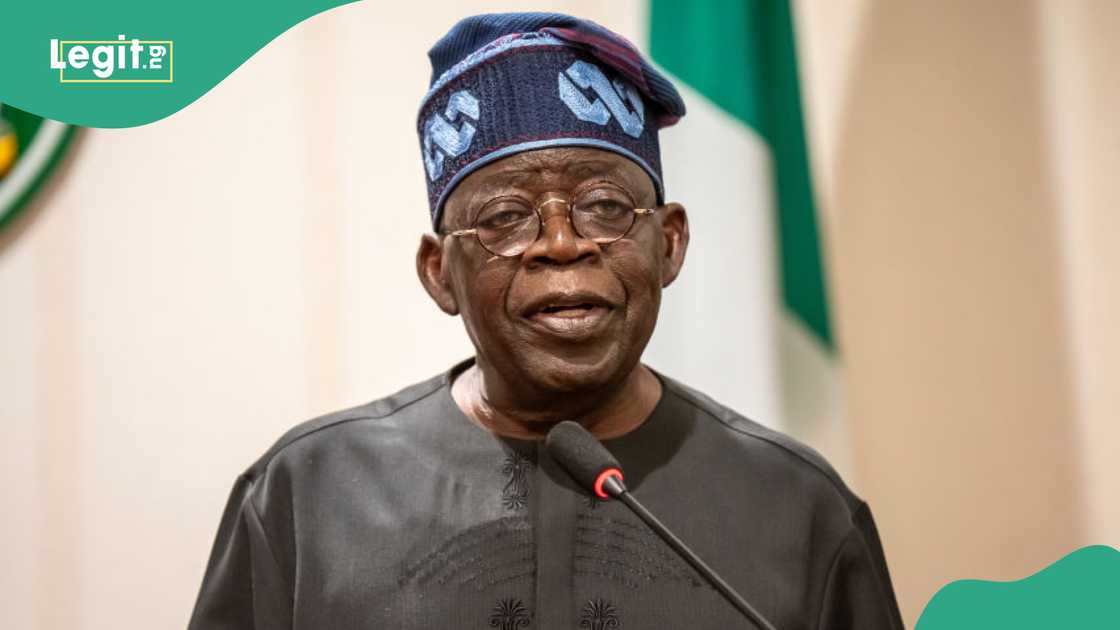- The US has cut its imports of Nigerian goods in one month, further straining relations with Nigeria
- New data from the US Census Bureau and the Bureau of Economic Analysis show that US imports from Nigeria declined FROM 639 million recently
- Coincidentally, US exports to Nigeria also dropped from $919 million in June 2025 to $584 million in July
Pascal Oparada, a reporter for Legit.ng, has over ten years of experience covering technology, energy, stocks, investment, and the economy.
The United States has cut its imports of Nigerian goods by 41% in a single month, raising concerns about the fragile state of trade relations between the two countries.
According to new figures from the U.S. Census Bureau and the Bureau of Economic Analysis, Nigerian exports to America dropped from $639 million in June 2025 to $379 million in July.
Credit: Bloomberg/Contributor
Source: Twitter
This sharp reversal coincided with a slowdown in U.S. exports to Nigeria, which fell from $919 million to $584 million in the same period.
Trump’s tariff squeeze
Despite this contraction, Washington still maintained a $206 million trade surplus with Nigeria in July, down from $280 million the previous month.
Between January and July 2025, the U.S. exported goods worth $3.92 billion to Nigeria while importing $3.14 billion, leaving it with a cumulative surplus of $781 million.
Observers link Nigeria’s struggles to renewed U.S. trade measures under President Donald Trump’s “reciprocal tariff” regime.
In late July, Trump signed an executive order raising tariffs on Nigerian exports from 14% in April to 15%, targeting countries that run surpluses with the U.S.
While crude oil, Nigeria’s main export, remains partly exempt, the uncertainty surrounding tariff enforcement has discouraged import demand, particularly for non-oil goods such as agricultural produce, leather, and manufactured items.
Analysts say the move is aimed at protecting U.S. domestic industries while reducing trade imbalances.
For Nigeria, however, it signals shrinking access to a critical export market and underscores its vulnerability to shifts in U.S. trade policy.
Africa trade trends reveal contrast
While Nigeria struggled, U.S. imports from Africa as a whole rose from $3.67 billion in June to $4.47 billion in July.
Exports to the continent slipped slightly, pushing Washington’s trade deficit with Africa to $1.17 billion, up from $302 million in June.
According to a BusinessDay report, country-level data showed contrasting outcomes: the U.S. recorded a $557 million surplus with Egypt, while its deficit with South Africa hit $1.42 billion in July alone, fueled by imports of minerals and automobiles.

Credit: State House.
Source: Getty Images
America’s cumulative trade deficit with South Africa for 2025 has already ballooned to $7.74 billion.
Global context and rising risks
The latest figures also showed that the U.S. global trade deficit widened to $78.3 billion in July, up from $59.1 billion in June.
Imports surged to $358.8 billion, while exports rose slightly to $280.5 billion.
For Nigeria, the numbers are a warning sign. As global markets adjust to shifting tariff regimes, analysts caution that Abuja must diversify its exports, strengthen trade ties beyond the U.S., and cushion itself against further shocks.
Without such steps, the 41% crash in U.S. imports could mark the beginning of a more painful chapter in Nigeria’s trade story.
FG bans import of goods Nigerians can produce
Legit.ng earlier reported that in a bid to strengthen Nigeria’s domestic economy and promote local content, President Bola Tinubu has initiated a policy that bars the Ministries, Departments, and Agencies (MDAs) from procuring foreign goods or services already available locally, without a written waiver from the Bureau of Public Procurement (BPP).
This comes as the Federal Executive Council (FEC) gave its approval to the new policy framework that places the country at the centre of all public procurement and business activity.
The Minister of Information and National Orientation, Mohammed Idris, explained that the new policy is designed to ensure the country promotes homegrown products.
Source: Legit.ng

